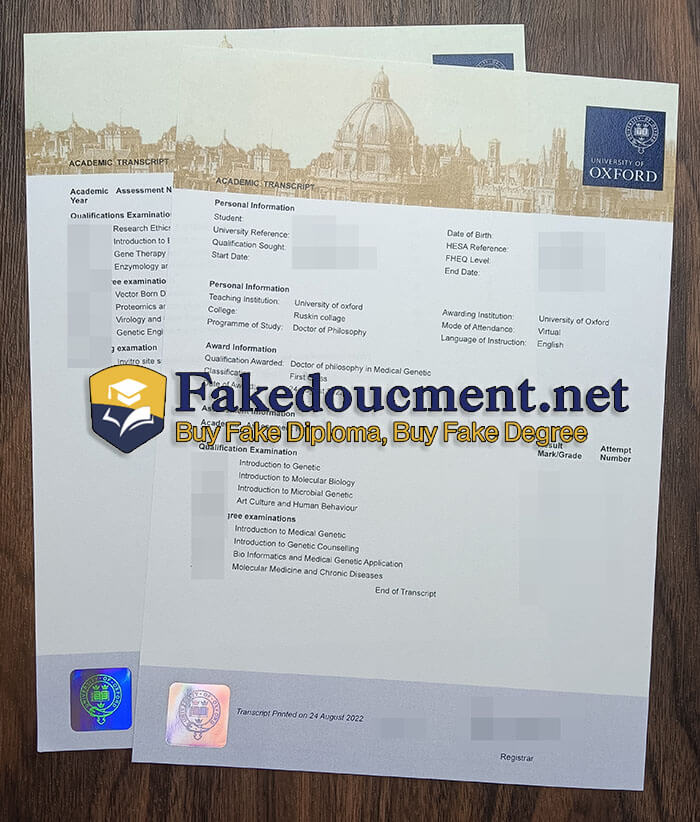
Where to order a realistic University of Oxford Transcript online? I would like to buy a realistic University of Oxford Transcript online, The best way to buy a realistic University of Oxford Transcript online? The University of Oxford is a prestigious university located in Oxford, England. It is the oldest university in the English-speaking world, with a history dating back to the 12th century.
Oxford is known for its academic excellence and is consistently ranked as one of the top universities in the world. It offers a wide range of undergraduate and postgraduate programs across various disciplines and has a strong reputation for research and teaching.
The University of Oxford‘s foundation date is unknown. In the 14th century, the historian Ranulf Higden wrote that the university was founded in the 10th century by Alfred the Great, but this story is apocryphal. It is known that teaching at Oxford existed in some form as early as 1096, but it is unclear when the university came into being. Scholar Theobald of Étampes lectured at Oxford in the early 1100s.
It grew quickly from 1167 when English students returned from the University of Paris. The historian Gerald of Wales lectured to such scholars in 1188, and the first known foreign scholar, Emo of Friesland, arrived in 1190. The head of the university had the title of chancellor from at least 1201, and the masters were recognised as a universitas or corporation in 1231. The university was granted a royal charter in 1248 during the reign of King Henry III.
After disputes between students and Oxford townsfolk in 1209, some academics fled from the violence to Cambridge, later forming the University of Cambridge.
The students associated together on the basis of geographical origins, into two ‘nations’, representing the North (northerners or Boreales, who included the English people from north of the River Trent and the Scots) and the South (southerners or Australes, who included English people from south of the Trent, the Irish and the Welsh). In later centuries, geographical origins continued to influence many students’ affiliations when membership of a college or hall became customary in Oxford.
In addition, members of many religious orders, including Dominicans, Franciscans, Carmelites, and Augustinians, settled in Oxford in the mid-13th century, gained influence and maintained houses or halls for students. At about the same time, private benefactors established colleges as self-contained scholarly communities. Among the earliest such founders were William of Durham, who in 1249 endowed University College, and John Balliol, father of a future King of Scots; Balliol College bears his name.
Another founder, Walter de Merton, a Lord Chancellor of England and afterwards Bishop of Rochester, devised a series of regulations for college life; Merton College thereby became the model for such establishments at Oxford, as well as at the University of Cambridge. Thereafter, an increasing number of students lived in colleges rather than in halls and religious houses.
In 1333–1334, an attempt by some dissatisfied Oxford scholars to found a new university at Stamford, Lincolnshire, was blocked by the universities of Oxford and Cambridge petitioning King Edward III. Thereafter, until the 1820s, no new universities were allowed to be founded in England, even in London; thus, Oxford and Cambridge had a duopoly, which was unusual in large western European countries.






